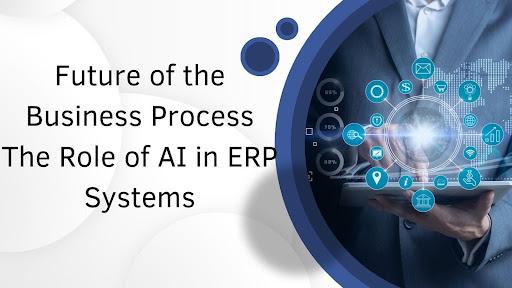In today’s fast-paced business world, organizations are increasingly turning to cutting-edge technology to streamline operations, improve efficiency, and stay ahead of competitors. One of the most transformative innovations in the enterprise resource planning (ERP) environment is the integration of artificial intelligence (AI). This convergence of AI and ERP systems is more than just a trend. This is an innovative product that has the potential to revolutionize the way businesses operate and deliver unprecedented benefits across a variety of sectors.
A research study by Poornachandar Pokala, a technology expert with business process knowledge, explores how artificial intelligence is revolutionizing enterprise resource planning (ERP) systems and bringing about major changes in the way businesses operate in a digital world. We are investigating.
Evolution of ERP systems
Enterprise resource planning (ERP) systems have long been the backbone of modern organizations. These integrated software solutions help manage various business processes such as finance, human resources, inventory, supply chain, and customer care.
However, as the business environment becomes more complex and competitive, the need for smarter and more adaptable systems is increasing. This is where AI comes into play. By integrating AI capabilities into ERP systems, companies can not only automate tasks, but also leverage predictive insights, enhance decision-making, and optimize operations in ways previously unimaginable. can.
How AI enhances ERP systems
1. Automation and Efficiency: One of the most immediate benefits of AI in ERP systems is the automation of repetitive tasks. Processes such as data entry, inventory management, and order fulfillment can be handled by AI algorithms, freeing up valuable time for employees to focus on strategic activities. AI can read historical data and recognize patterns, allowing it to perform tasks faster and more accurately with minimal human intervention.
2. Predictive Analytics: AI-powered ERP systems can analyze vast amounts of data to accurately predict trends and outcomes. For example, AI can predict inventory needs, demand fluctuations, and supply chain disruptions. This predictive capability helps businesses make proactive decisions, reduce waste, and optimize resource allocation. AI can also predict financial trends, allowing businesses to better plan for the future.
3. Improved decision-making: AI enhances decision-making by providing real-time, data-driven insights. Using machine learning algorithms, AI-powered ERP systems can process and analyze complex data sets, providing executives with actionable insights that lead to more informed decisions. These insights are especially valuable in risk management, customer relationship management (CRM), and human resources.
4. Enhance customer experience: By integrating AI with the customer relationship management (CRM) module of an ERP system, companies can provide more personalized and efficient services. AI analyzes customer behavior and preferences, allowing companies to customize products, services, and marketing efforts. Additionally, AI chatbots and virtual assistants can interact with customers in real-time, instantly resolving questions and issues, and improving overall customer satisfaction.
5. Supply chain optimization: AI-powered ERP systems will transform supply chain management. AI can analyze historical data to optimize inventory levels, predict stock shortages, and suggest reorder points to minimize the risk of overstocking or understocking. AI can also predict potential disruptions, such as supplier delays or spikes in demand, so businesses can adjust their strategies accordingly and maintain smooth operations.
6. Smart financial management: AI can enhance financial management within your ERP system by automating processes such as invoice processing, expense management, and reconciliation. Machine learning algorithms detect anomalies and fraud to ensure better financial management and compliance. AI also provides real-time financial analysis, allowing businesses to monitor cash flow, track expenses, and make data-driven financial decisions.
In conclusion, the convergence of technology at Poornachandar Pokhara represents a fundamental change in the way businesses operate, promising unprecedented levels of operational efficiency, decision-making accuracy, and competitive advantage. The future of enterprise systems will be increasingly intelligent and adaptable, capable of driving innovation across all business functions.



